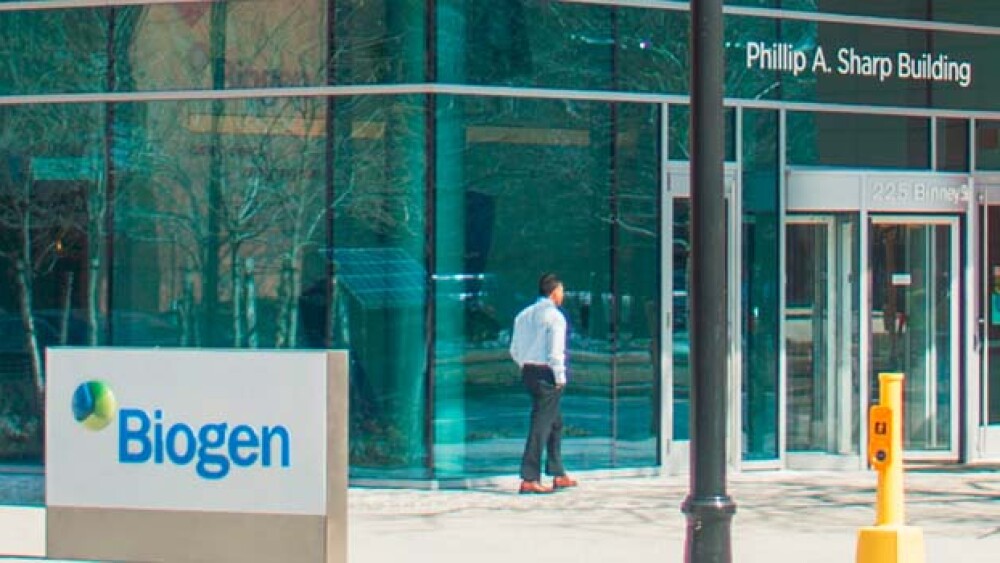Now that Novartis has a competing therapy on the market for spinal muscular atrophy (SMA), Biogen is eager to show why it thinks its Spinraza (nusinersen) is superior.
Now that Novartis has a competing therapy on the market for spinal muscular atrophy (SMA), Biogen is eager to show why it thinks its Spinraza (nusinersen) is superior. Today, Biogen released new data from the NUTURE clinical trial, which adds data to the longest study of SMA in pre-symptomatic infants.
SMA is a rare, genetic neuromuscular disease caused by a defective or missing SMN1 gene. Infants with SMA lose the motor neurons responsible for muscle functions such as breathing, swallowing, speaking and walking. The disease can lead to death.
Biogen presented the new data at the Cure SMA Annual SMA Conference in Anaheim and at the 5th Congress of the European Academy of Neurology (EAN) held in Oslo, Norway.
The data reported the drug’s efficacy and safety for up to 45.1 months after treatment and demonstrated continuous improvement for the vast majority of patients achieving motor milestones in a normal timeframe.
“These study results demonstrate the durable impact of pre-symptomatic, proactive treatment on transforming the natural course of this disease,” stated Darryl De Vivo, Sidney Carter Professor of Neurology and Pediatrics, Columbia University Irving Medical Center in New York City. “We are seeing an extensive number of patients continually meeting child motor development milestones and making unprecedented gains in a previously hopeless and often fatal condition. Spinraza is setting patients on a path toward survival, greater mobility and independence, which is helping improve outcomes for patients of all ages.”
In the NURTURE trial, an ongoing Phase II trial, 100% of patients were alive without need for permanent ventilation, and 100% of the infants are sitting independently, and 88% were walking independently in the normal timeframe for a toddler.
Spinraza was the first therapy approved for SMA and is available in more than 40 countries.
In late May, the U.S. Food and Drug Administration (FDA) approved Novartis’ Zolgensma, a gene therapy, for SMA with bi-allelic mutations in the survival motor neuron 1 (SMN1) gene.
Novartis’ therapy appears to be a one-time cure for the disease, whereas Biogen’s Spinraza requires regular treatments. However, at this time, Zolgensma has only been approved for one type of SMA, while Biogen’s Spinraza is approved for all four types. Biogen is also emphasizing its more extensive and longer-term data.
There is something of an ongoing debate about pricing for both therapies. The cost of Spinraza is about $750,000 for the first year of treatment and then about $375,000 each year afterward for the rest of the patients’ lives. Novartis’ Zolgensma will have a price of around $2.125 million spread over five years but theoretically would be a one-time treatment.
Biogen notes that it has the largest clinical data set in SMA, containing data from more than 300 patients across a broad range of SMA population.
Vinie Varkey, a senior pharma analyst at GlobalData, noted that in the short-term, Biogen has an advantage over Novartis because of the well-established safety and efficacy data. Physicians and families will likely be slow to switch from Spinraza to Zolgensma. But that is unlikely to last long as Novartis acquires more data, and despite the more expensive five-year outlay for the Novartis product, would be less expensive over the long-term.
Varkey stated, “However, the advent of new-born screening initiatives for SMA is expected to hand Novartis a big advantage in the long-term, as this will help identify pre-symptomatic patients who are likely to prefer a one-off gene therapy treatment compared to Biogen’s chronic treatment option.”





